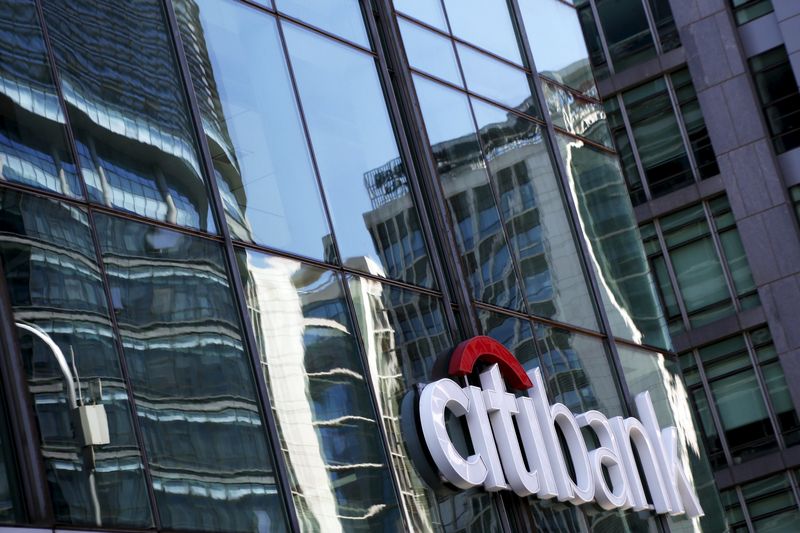This post was originally published on this site
https://i-invdn-com.akamaized.net/news/LYNXNPEC3P0DZ_M.jpg
Investing.com – The Dow clawed back its losses Monday, as the widely expected rollout of a $900 billion stimulus package and a surge in financials help stocks recover and eased fears that a new strain of Covid-19 will hurt global growth.
The Dow Jones Industrial Average rose 0.12%, or 37 points, but had been down by more than 400 points earlier in the day. The S&P 500 was down 0.39%, while the Nasdaq Composite slipped 0.10%.
Financials helped the market recover losses, with banking stocks leading the charge higher. The Fed on Friday after-markets closed said, based on its latest stress tests, it would allow banks to buy back stocks and pay out dividends as its stress tests suggested banks had “strong capital levels.”
The stress test started in 2009 and is supposed to show what happens to banks’ balance sheets – in terms of losses and capital levels – under an extreme hypothetical adverse scenario.
JPMorgan Chase & Co (NYSE:JPM), Bank of America (NYSE:BAC), and Goldman Sachs Group Inc (NYSE:GS) closed higher, with the latter surging 6%.
Markets got off to a weak start as sea of red washed over Wall Street after a new strain of Covid-19 spreading rapidly across England prompted fresh travel restrictions from Canada and parts of Europe and raised concerns about the impact on the global economic recovery.
“While news of a new COVID-19 strain in London first emerged a while back, tightening restrictions by the EU and Canada and deepening lockdowns are sparking heightened concern,” Scotia Economics said in a note.
The market recovery was also supported by expectations it was about to get a shot in the arm as lawmakers on Capitol Hill get ready to vote in favor of a $900 billion stimulus package that will include direct funding to Americans.
“This is a very, very fast way of getting money into the economy. Let me emphasize: People are going to see this money at the beginning of next week,” Treasury Secretary Steven Mnuchin told CNBC.
On the vaccine front, Pfizer (NYSE:PFE) moved a step closer to gaining EU approval for its Covid-19 vaccine, developed in partnership with BioNTech SE (NASDAQ:BNTX). The European Medicines Agency granted the Pfizer-BioNTech vaccine a conditional marketing authorization, paving the way for the drug to begin distribution later this week.
Energy stocks were among the biggest decliners as the restrictions on global travel scaled back expectations for the recovery in travel demand, weighing on oil prices.
Industrials were hurt by falling airlines stocks, with United Airlines (NASDAQ:UAL), Delta Air Lines (NYSE:DAL) and American Airlines (NASDAQ:AAL) in red, and the latter down 2% on fears of further travel restrictions.
In other news, Nike (NYSE:NKE) jumped 5% after reporting better-than-expected quarterly results late Friday, driven by its direct-to-consumer push.
Tesla (NASDAQ:TSLA), meanwhile, fell 6.5% on its S&P 500 debut, but still remains up nearly 700% for the year so far. The weakness in Tesla comes on reports that Apple (NASDAQ:AAPL) is mulling an entry into the electric vehicle market as soon as 2024. A potential Apple car would also include battery technology that could reduce costs and increase range, offering competition to runaway leader Tesla.

